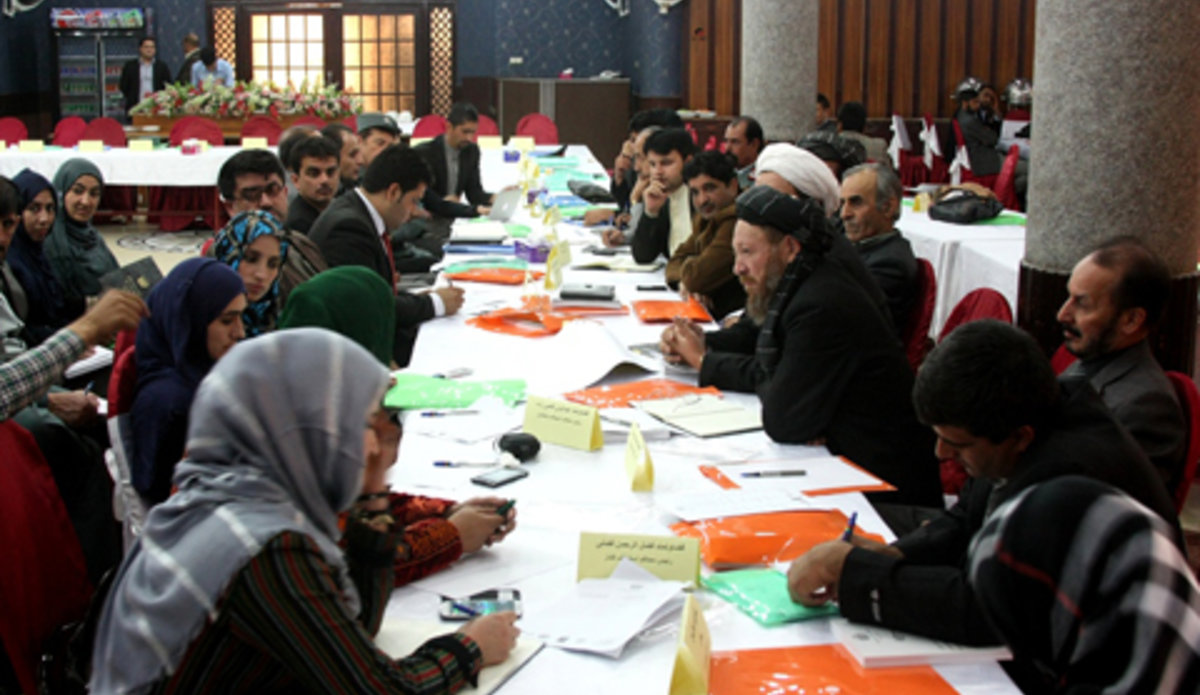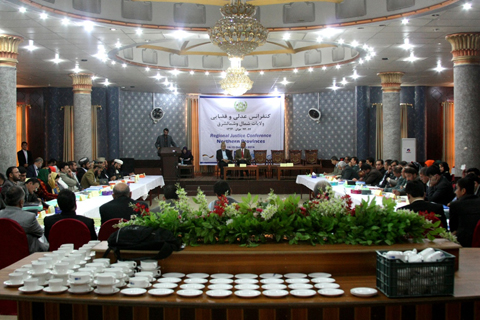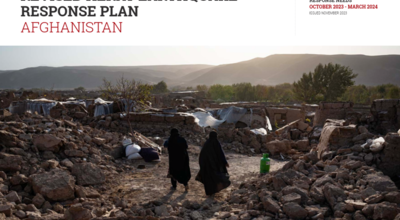Afghans work to improve local justice mechanisms for poor, disenfranchised
KABUL - More than 100 Afghans attended a two-day conference in Mazar-e Sharif, the capital city of Afghanistan’s northern province of Balkh, to discuss ways to improve law enforcement and justice mechanisms at local and regional levels.
The conference, funded and organized by the United Nations and its partners, brought together representatives from the judiciary system, detention facilities and law-enforcement agencies to discuss corruption and professionalism, and collaborate on ways justice institutions can cater more effectively to the needs of ordinary Afghans.
“The poor people and those who don’t have links with government officials are the ones who really serve time in prison,” said Balkh’s Provincial Council Chair, Afzal Hadid, in opening remarks. “There is a double standard and stereotyping in the system; law is enforced only on the poor.”
He added that prison officials often behave differently when it comes to the most powerful Afghans, and urged the government to reform the salaries of low-paid justice employees to reduce cases of bribery.
Judge Mohammad Aziz Sarwari, the head of Balkh’s Appeals Court, echoed Mr. Hadid’s sentiments, saying that widespread corruption and the interference of influential figures in the legal process directly contribute to a culture of impunity and ultimately increase insecurity. He said that more effective coordination, at every stage of the legal process, would leave less room for corruption.
During the two-day meeting, participants discussed outstanding issues in coordinating work among respective justice entities, and the way to identify problems and resolve them, moving forward. Modernizing the systems used by all elements of the justice system was a universal recommendation among conference participants as a way to raise public awareness, build local capacity and improve legal processes.
 UN
UN









